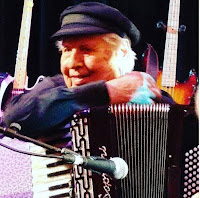In case you’ve almost missed it, this week was National Pain Week. Chronic pain has many sources and is not usually visible, which is why
many of us who suffer with it are inevitably faced with the exclamation, but
you look all right! Just a hint folks, not a good way to start a conversation
with someone whose every fibre is screaming although you can't hear the
vocals.
I can't speak for the origin of the pain of others but I
suspect conditions of onset might be common. Mine developed after lifesaving
surgery and gave me a completely new set of challenges. It took three years to
diagnose properly. By then, I was barely functional. I own up to being a major
overachiever so I was resistant to the adjustments that needed to be made. I had
a high-profile corporate career, a large extended family and community
commitments. I wanted to get up, go, and keep living the life I thought I'd get
back once my surgery was over. Luckily, a fantastic pain specialist, stints in
a rehab hospital and a team of physios, osteopaths, occupational therapists and
counsellors, all worked to help me get a new perspective on the situation.
The first thing I had to do was to develop acceptance. Notice
that I used the word 'develop' – it took a while. On the days that I felt better,
I rushed to do heaps of 'catch up' things then wondered why I crashed the next
day. I learnt with practice to do something called 'pacing'. Ha! No mean feat
for a woman who lived at a million miles an hour.
My specialist gave me a useful analogy one once, telling me to
think of my daily energy availability as a pie (pizza if I'm keeping with my Italian
origins). This has to be sliced up for allocation – your brain needs the energy
to think, move and to process all those functions that run like background apps
of which we're unaware. With chronic pain, the brain is also trying to get that
pain under control so for that it grabs the largest slice of the pie/pizza (as
any of you with hungry kids would understand). This leaves less energy for the background
bits that have to keep running regardless. And, if on those days I'm trying to
do too much with a smaller energy slice, it's no wonder exhaustion ensues. When
I finally understood this and married it with what I'd been taught to help manage
my pain – medication when needed, eating well, relaxation, massage, counselling,
yoga and appropriate exercise - I achieved more.
One of the characteristics of my pain is that it is unpredictable.
More correctly, the peaks in it are. It's always in the background and when I stop
and mentally scan my body, I feel pain it everywhere. But there are days when
for no discernible reason, it spikes and that can last for a while. On those days,
I might not be able to put my feet on the floor without pain so it's hard to walk.
Nerve pain fools me into trying to work out if the sensation is burning hot or
freezing cold, any kind of stimulus is painful, my head gets fuzzy and
concentration is a chore. I can't grip things, I can't sleep and I can't eat. Nausea
sets in and fatigue can be a bitch. That's just the stuff that's easiest to deal with.
I've consulted anyone who is an 'ologist' in every field because
chronic pain is a complex condition involving many body systems. All of this helps
me to understand and to manage. However, chronic pain affects us physically and
psychologically. It can be depression and is anxiety provoking. At times, I feel vulnerable
as if my body is letting us down. The worst part of the condition for me was
the initial loss of identity. After almost dying from the medical condition that
resulted in the pain's offset, I was forced to give up my career and income, which
was gutting. I identified with my job. I couldn't do as much for my family and
friends nor be involved in the activities that I loved. Good counsellors and staying
connected to people as much as I could, got me across the line, helping me
understand that living life differently can have benefits.
Making changes didn’t mean giving up enjoying life. To the
contrary, it meant that through learning to understand my condition, and how to
manage it, I could go on living, even if it was in different ways and at a different
pace. It isn’t perfect, far from it. I read avidly about new research and
practices in pain management, I constantly try to improve how I approach it.
My suggestion to anyone struggling with chronic pain is to
find a pain practitioner or a pain support clinic – advances in neuroscience
are being made all the time, which practitioners know about and can apply to each person's situation. Read up on the condition, adjust to the circumstances where possible by following management strategies. There are websites and resources
that you can hook into and follow. Stay connected to the world.
Chronic pain brought me a changed life. While this has its challenges, my life still has potential, I still have contributions to make, there is still happiness and even joy.


